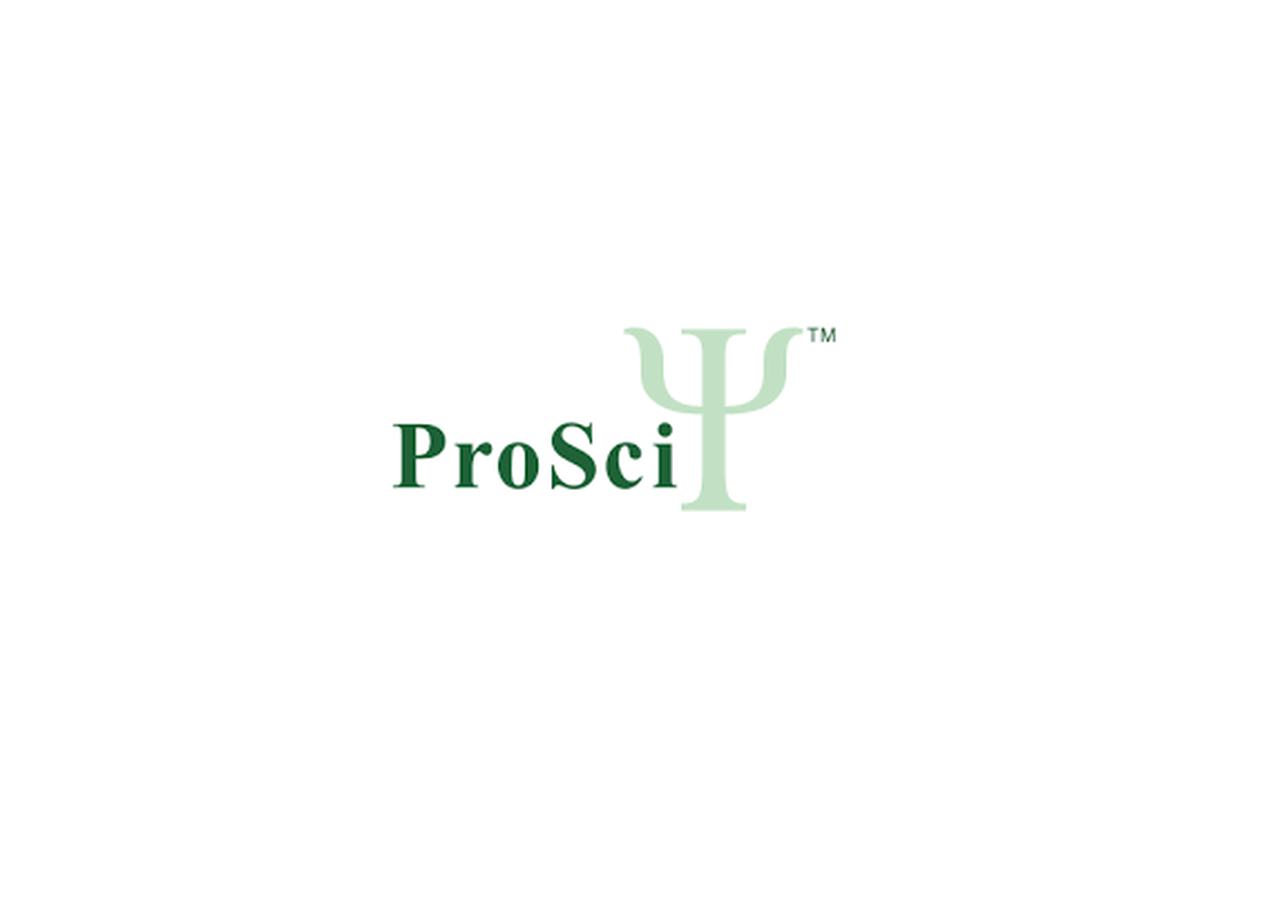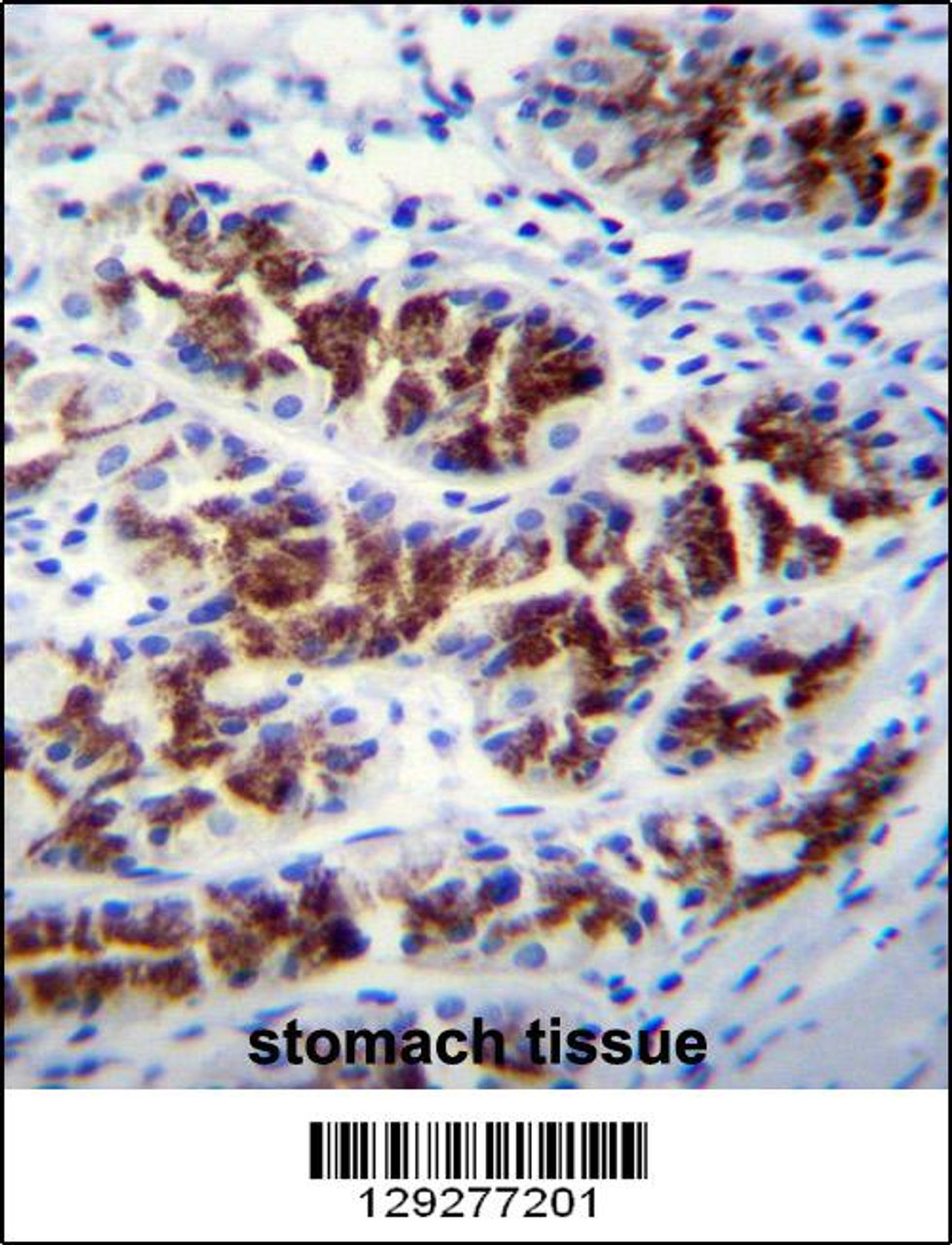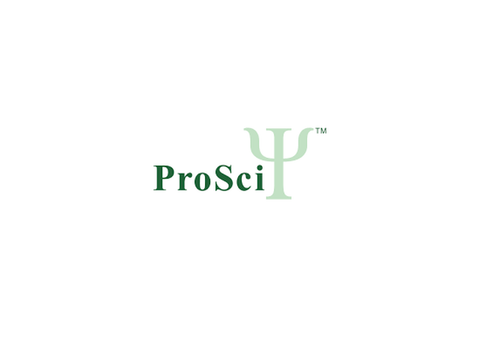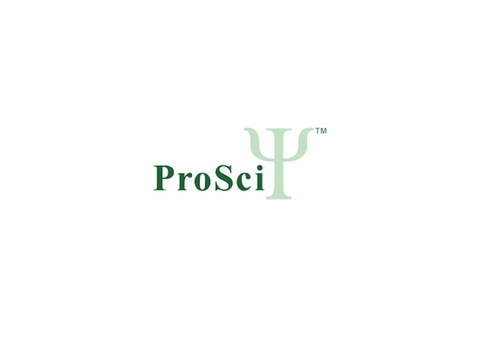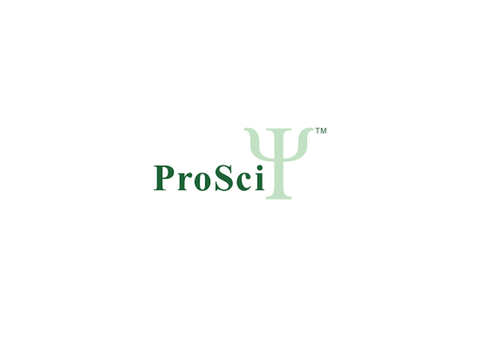Product Description
PTPN20A Antibody | 56-046 | ProSci
Host: Rabbit
Reactivity: Human
Homology: N/A
Immunogen: This PTPN20A antibody is generated from rabbits immunized with a KLH conjugated synthetic peptide between 178-207 amino acids from the Central region of human PTPN20A.
Research Area: Signal Transduction
Tested Application: WB, IHC-P, Flow
Application: For WB starting dilution is: 1:1000
For IHC-P starting dilution is: 1:10~50
For FACS starting dilution is: 1:10~50
Specificiy: N/A
Positive Control 1: N/A
Positive Control 2: N/A
Positive Control 3: N/A
Positive Control 4: N/A
Positive Control 5: N/A
Positive Control 6: N/A
Molecular Weight: 48 kDa
Validation: N/A
Isoform: N/A
Purification: This antibody is purified through a protein A column, followed by peptide affinity purification.
Clonality: Polyclonal
Clone: N/A
Isotype: Rabbit Ig
Conjugate: Unconjugated
Physical State: Liquid
Buffer: Supplied in PBS with 0.09% (W/V) sodium azide.
Concentration: batch dependent
Storage Condition: Store at 4˚C for three months and -20˚C, stable for up to one year. As with all antibodies care should be taken to avoid repeated freeze thaw cycles. Antibodies should not be exposed to prolonged high temperatures.
Alternate Name: Tyrosine-protein phosphatase non-receptor type 20, hPTPN20, PTPN20A
User Note: Optimal dilutions for each application to be determined by the researcher.
BACKGROUND: The product of this gene belongs to the family of classical tyrosine-specific protein tyrosine phosphatases. Many protein tyrosine phosphatases have been shown to regulate fundamental cellular processes and several are mutated in human diseases. Chromosome 10q contains a segmental duplication resulting in multiple copies of the protein tyrosine phosphatase, non-receptor type 20 gene. The two nearly identical copies are designated as PTPN20A and PTPN20B. A third copy is only partially duplicated and contains a pseudogene, designated as PTPN20C. This gene encodes the more telomeric copy, PTPN20B. Multiple alternatively spliced transcript variants encoding different isoforms have been identified.
 Euro
Euro
 USD
USD
 British Pound
British Pound
 NULL
NULL

